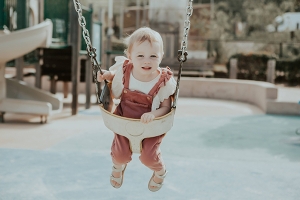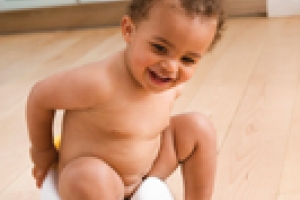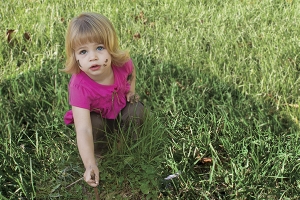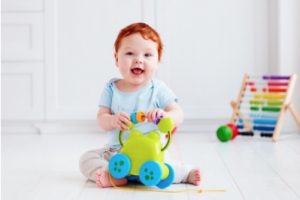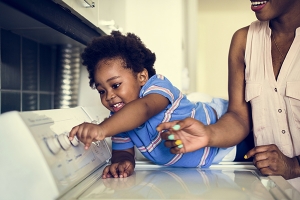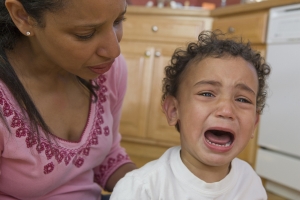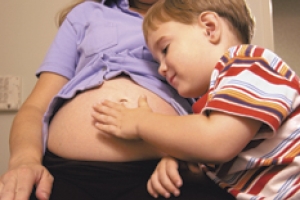
If there’s one thing parents of toddlers can agree on, it’s that toddlers want to assert their independence. It feels as though they say, “I do it!” all day long, which leaves parents wondering how they can channel this energy in constructive ways.
Toddlers can be wonderful helpers around the home in ways that might surprise many parents. At Die Rasselbande Preschool, a German-immersion, play-based program in San Diego’s College Area, children as young as 2 years old wash their own snack dishes every morning. The children enjoy the sensory experience of submerging their hands in water and rubbing plates with a small sponge. They also benefit from the social act of cleaning up after themselves and contributing to the classroom’s well-being.
The simple act of washing dishes may not seem like a learning opportunity, but doing “work” that benefits people children care about builds confidence and a sense of belonging. “Most children prefer an activity that you take part in,” says Jil Rudolf-Vazquez, M.S. Child Development, specializing in early childhood education and mental health. “A lot of daily tasks that promote fine motor skills can be performed with a parent, caregiver or older sibling. Children can be helpers and do things on their own, which makes them feel very proud and important. Daily tasks also help a child become confident and build self-esteem.”
Children innately want to help, they just need structure and guidance for each task until it becomes second nature. “Really young children will continue to help if [parents] let them. It is during this developmental stage that [children] get discouraged because sometimes parents are afraid they will get hurt, break something or are simply too slow,” says Rudolf-Vazquez.
It may be stressful to slow down and show children how to wash their dishes, but with the right set up, a toddler can eventually do it independently. Consider keeping a safety stool in the kitchen, then set up the sink or a small bin with a small amount of soapy water. It will pay off in dividends when they are in elementary school and helping is a reflex built from toddlerhood.
Toddlers are also capable of helping prep fruits and vegetables. With adult supervision and help, children as young as 2 years old can chop soft vegetables or fruits such as berries, avocados and bananas. This offers a host of benefits such as shared time bonding in the kitchen and building confidence by doing “work” that benefits the family. Children take great pride in watching everyone at the table eat food they have helped prepare. Kids are also more likely to branch out and try new food if they’ve had a hand in making it.
Fine Motor Activities for Young Children
Daily activities that are great for children as young as 18 months old.
- Putting clothes on
- Opening and closing bottles
- Gardening, planting
- Using clothes pins
- Providing silverware for eating
- Serving themselves
- Cutting soft veggies and fruits
- Doing arts and crafts (including use of safety scissors)
- Putting beads on strings or pipe cleaners
- Puzzles
- Dressing stuffed animals or dolls
Why are fine motor skills important?
According to Rudolf-Vazquez, fine motor skills allow children to cross the body’s midline, which is extremely important for communication and coordination of the right and left hemispheres of the brain. They also help improve hand-eye coordination and build the foundation for writing and self-care activities. Allowing little ones to develop independence through practicing with buttons and washing dishes helps them be self-sufficient later in life.
“It is important to remember that young children have a very limited attention span,” says Rudolf-Vazquez. “I like to say one minute per year of age. So, for a 2-year-old, two minutes is an appropriate expectation.”
Oftentimes parents peruse Pinterest for sensory bin and craft ideas to help develop fine motor skills in toddlers, but it does not need to be that complicated. By helping their parents and older siblings with everyday tasks, toddlers gain confidence in their abilities and develop a love of helping. Instead of giving children fine motor skill activities to do alone, make the most of this important phase of natural development by doing them together.
Allyson Kennett is a former preschool teacher and mother of three living in San Diego’s South Bay.
____________

